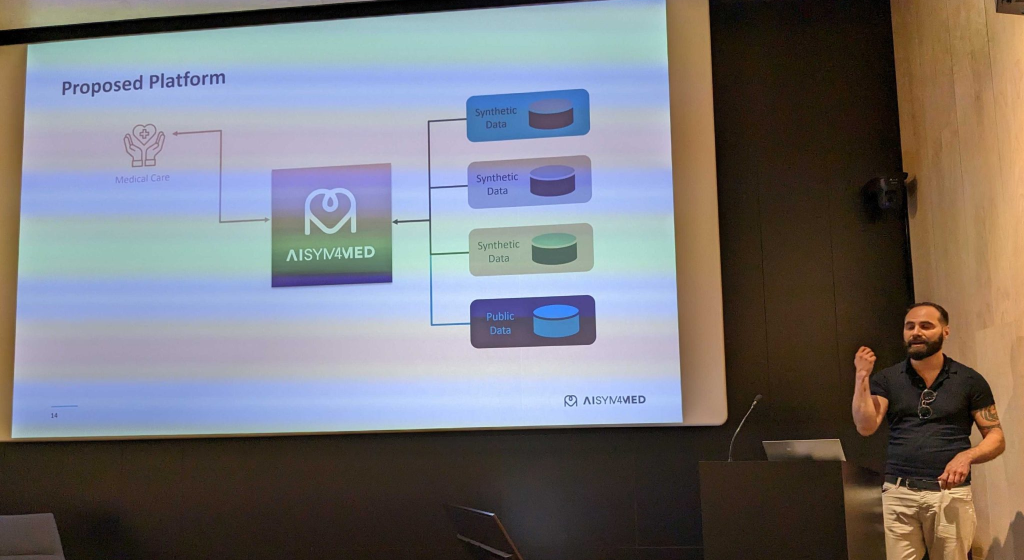Pioneering AI for Medical Innovation
Last week, the AISym4MED project was proudly represented at ECML-PKDD, the European Conference on Machine Learning and Principles and Practice of Knowledge Discovery in Databases — the largest and most prestigious event in Europe dedicated to cutting-edge research in machine learning, data science, and artificial intelligence.
Our partners Fraunhofer AICOS and FEUP actively contributed to the conference with a series of presentations that showcase the innovative work being carried out within AISym4MED, particularly in the areas of synthetic data generation, medical imaging, and clinical prediction models.
On Tuesday, Luís Rosado, Ivo Façoco, Maria Russo, and Pedro Matias delivered a tutorial on PyMDMA, a Python library designed to audit and evaluate multimodal datasets, both real and synthetic. This tool is particularly relevant for ensuring data quality and trustworthiness in AI systems, a core objective of AISYM4MED.
The associated paper, “pyMDMA: Multimodal data metrics for auditing real and synthetic datasets“, was recently published in the journal SoftwareX, further validating the impact of this work in the scientific community.
Also on Tuesday, Ivo Façoco presented the paper “Adapting Stable Diffusion Models for Domain-Specific Medical Imaging: A Case Study in Synthetic Retinal Fundus Image Generation”, co-authored with Gonçalo Mesquita, Francisca Lúcio, and Luís Rosado.
This research explores how generative models like Stable Diffusion can be fine-tuned to produce high-quality synthetic medical images, which can support training and validation of AI systems in ophthalmology, especially when real data is scarce or sensitive.
The event concluded on Friday, with Pedro Matias1 who presented “Learning from Less: Synthetic Clinical Data Augmentation for Predicting Cardiac Decompensation and Pulmonary Exacerbation”, co-authored with Beatriz Barros1, Maria Russo1, César Gálvez-Barrón2, Carlos Pérez-López2, and Inês Sousa1.
This work investigates how synthetic data can be used to augment clinical datasets and improve predictive models for critical health conditions, such as heart failure and respiratory complications. The approach aligns with AISYM4MED’s mission to develop robust, privacy-preserving AI tools for healthcare.
These contributions not only demonstrate the technical excellence of our partners but also reinforce AISYM4MED’s commitment to ethical, transparent, and impactful AI in medicine. By participating in ECML-PKDD, the project is engaging with the broader research community, sharing insights, and fostering collaborations that will help shape the future of AI-driven healthcare.



